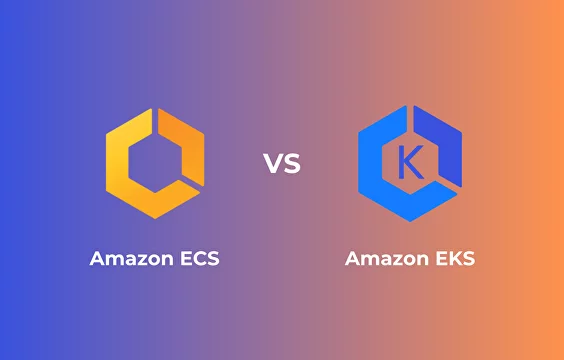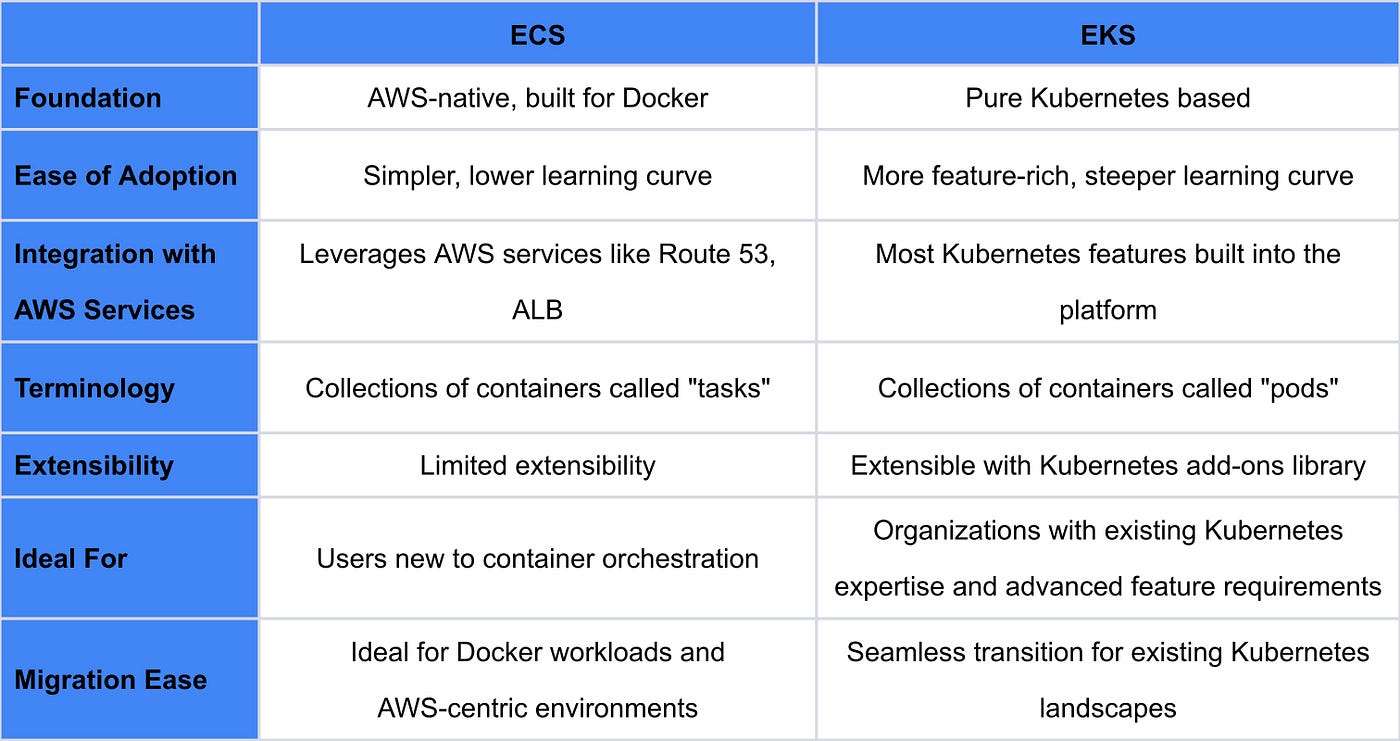AWS provides two main container orchestration services: Amazon Elastic Kubernetes Service (EKS) and Amazon Elastic Container Service (ECS). Both services help deploy, manage, and scale containerized applications, but they cater to different use cases and preferences.

EKS is a managed Kubernetes service that simplifies running Kubernetes clusters on AWS. Kubernetes (K8s) is an open-source container orchestration tool that automates deployment, scaling, and operations of containerized applications.
✅ Fully managed Kubernetes – AWS handles control plane management, security patches, and scaling.
✅ Portability & Multi-cloud – Kubernetes is cloud-agnostic, allowing migration between AWS, on-prem, and other cloud providers.
✅ Scalability & Flexibility – Supports complex workloads with fine-tuned resource allocation.
✅ Integration with AWS services – Works well with IAM, VPC, ALB, CloudWatch, and Auto Scaling.
✅ Open-source ecosystem – Access to Helm, Prometheus, Istio, and other Kubernetes tools.
You need multi-cloud or hybrid deployments.
Your team already has Kubernetes expertise.
You require fine-grained control over networking, scaling, and configurations.
Your application requires high availability with multiple clusters.
ECS is a fully managed container orchestration service that integrates deeply with AWS infrastructure. Unlike EKS, ECS does not require Kubernetes knowledge, making it easier to manage.
✅ Simpler setup & management – No need to manage Kubernetes clusters or configurations.
✅ Deep AWS integration – Works seamlessly with IAM, CloudWatch, Fargate, and Load Balancers.
✅ Lower operational overhead – AWS handles cluster management and scaling.
✅ Cost-effective – Easier to optimize for small to medium workloads.
✅ Supports AWS Fargate – Serverless option to run containers without managing EC2 instances.
You prefer simplicity and deep AWS integration.
You want less operational overhead than managing Kubernetes.
Your team lacks Kubernetes expertise.
You need tight cost control with minimal management.
You're running AWS-native workloads without multi-cloud needs.

Choose EKS if you need Kubernetes, multi-cloud, or hybrid environments.
Choose ECS if you prefer AWS-native, simpler, and cost-efficient container management.
Use ECS with AWS Fargate for a fully serverless experience.
Let us know if you need a deeper comparison or help with setup! 🚀
Posted by :
Risqi Ikhsani
February 6th, 2025
Reach Us
We'd love to assist you. Fill out the form or drop us an email.
Visit Us
Drop by our office for a chat.
Gedung Pondok Indah Office Tower 3, 17th Floor, Jl. Sultan Iskandar Muda Kav V-TA, Jakarta 12310, Indonesia